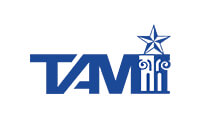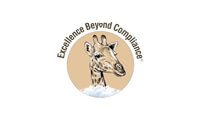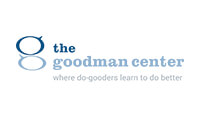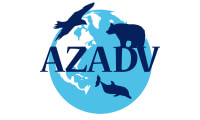To Gain Influence, Give Up Control
By Don Janssen, DVM
 It is a pleasure to be on a team where everyone pulls together, each contributing to the project at hand. In the early 1990s, I was on such a team working at the San Diego Zoo. The team's job was to coordinate logistics for receiving giant pandas on breeding loans from China. We met weekly to discuss updates and make plans.
It is a pleasure to be on a team where everyone pulls together, each contributing to the project at hand. In the early 1990s, I was on such a team working at the San Diego Zoo. The team's job was to coordinate logistics for receiving giant pandas on breeding loans from China. We met weekly to discuss updates and make plans.
At one such meeting, just after the permits were approved, the subject of quarantine came up. After waiting so long for the historic moment, some suggested the animals go directly to the Zoo's giant panda habitat. One of our leaders came up with the critical question. He asked, "Is there any reason we could not shorten the quarantine and get the animals on exhibit sooner?"
This question triggered a hot button in me—that is, being asked to compromise on the vital matter of quarantine. With that as my justification, it became my moment to show that I was in control as the organization's chief veterinarian and knew what to do. I pointed out that since the word "quarantine" is derived from the number 40, the 30-day duration we typically used was already a shortened quarantine. I thought I was clever, using this rationale to prove my point.
To this day, I remember the team's reaction after I made this bold, self-serving statement. No one said anything, but the body language of those in the room told me I'd made a big mistake. When I used my authority to control things at that critical moment, I realized I'd lost influence with key people in the organization. And influence turns out to be more important than thinking I was right and misusing my position of overseeing quarantine. Fortunately for me, after nearly derailing the meeting, the team pulled me from the wreck I was heading toward. Once I opened my ears and let go, the team came together with a creative solution that was better than I had hoped.
Admit it or not, we all have a desire to control things. And mostly, we want control over the behavior of other people. You might be thinking that there are good reasons to have that power.
You have essential responsibilities and people to whom you are responsible. But a strong desire for control works against you. In the panda quarantine example, I lost influence—at least for the moment. But how does this happen more generally? How is organizational influence lost?
Losing influence in the workplace is an all-too-common story. When I am left out of an important decision, see something going wrong, or want to change something, my desire for control kicks in. I can justify that desire because I think I deserve something, or that something was taken away. When that desire turns to action, I make demands on others, maybe even using the threat of force to comply. Getting my way becomes the goal. Building trusting relationships takes a back seat. Yielding my rights to assure others' rights are honored seems out of the question. My desire for control is selfish, and is recognized as such by others. That is how precious influence is lost.
I believe there is a better way. It comes with a key concept that is counterintuitive, and perhaps controversial. The key concept is this: although we desire control over high-stakes issues, what matters is being skilled at influencing people. Simply stated: To Gain Influence, Give Up Control. Influential leaders impact the thinking and actions of others without the need to exert control or authority. These are leaders we love to follow.
What, then, does it take to increase our influence and give up our desire for control?
- Start with humility. Yielding control to others is not for the ego-bound. It requires self-awareness and the desire to serve others' needs rather than focusing on your own. Remember, the only behavior you can control is your own. And that is difficult enough.
- No authority needed. Don't presume that you need a position of authority or power to make a difference. Having influence requires no rank or being in charge. Equally valid, a person with authority may have little individual impact. An interesting contrast is that control, based on power, is fleeting. Conversely, influence, based on relationships, is long-lasting.
- Expand your circle of influence. Everyone has a circle of concern, i.e., those issues you care about. Your circle of influence will necessarily be smaller than your circle of concern. Your circle of control is even smaller. Your goal should be to enlarge your circle of influence so that it approaches the size of your circle of concern. You can do this! Your expertise and experience— used with integrity and humility—is a powerful source for building influence.
- Clarify roles for important decisions. Successful partnerships thrive when functions are defined and distinct. When a troublesome decision surfaces among stakeholder partners, pin down who will be the decision-maker. Additionally, assign one or more advisors to provide evidence, analysis, and recommendations to the decision-maker. Advisors, often subject-matter experts, must accept and support the decision even if they disapprove of it. Wrestling over who is the decision-maker is a common source of conflict. Both roles are necessary, and both are equally important. But they usually differ in perspective.
- Giving up control changes people. By giving up control, you put to rest the battle over power. That's when progress can begin. When you end the struggle and yield control, others will see you differently, admire what they see, and choose to follow you. That's leadership.
- Choose to be an asset, not an adversary. This is a crucial choice to make. If you are seen as an asset by those around you, you will have successfully grown your influence.
- Bottom line: Are you willing to give up the desire for control (over what you can't get anyway) to gain influence (which is freely available and can be a mighty force for good)?
Adapted from the book Upside-Down Leadership: A Zoo Veterinarian's Journey to Becoming a Servant Leader. Please send comments or questions to don.janssen@gmail.com.
Don Janssen, DVM, is a veterinarian and retired corporate director of animal health for San Diego Zoo Wildlife Alliance. He is the author of Upside-Down Leadership: A Zoo Veterinarian's Journey to Becoming a Servant Leader. You can find more information about the book here.






















